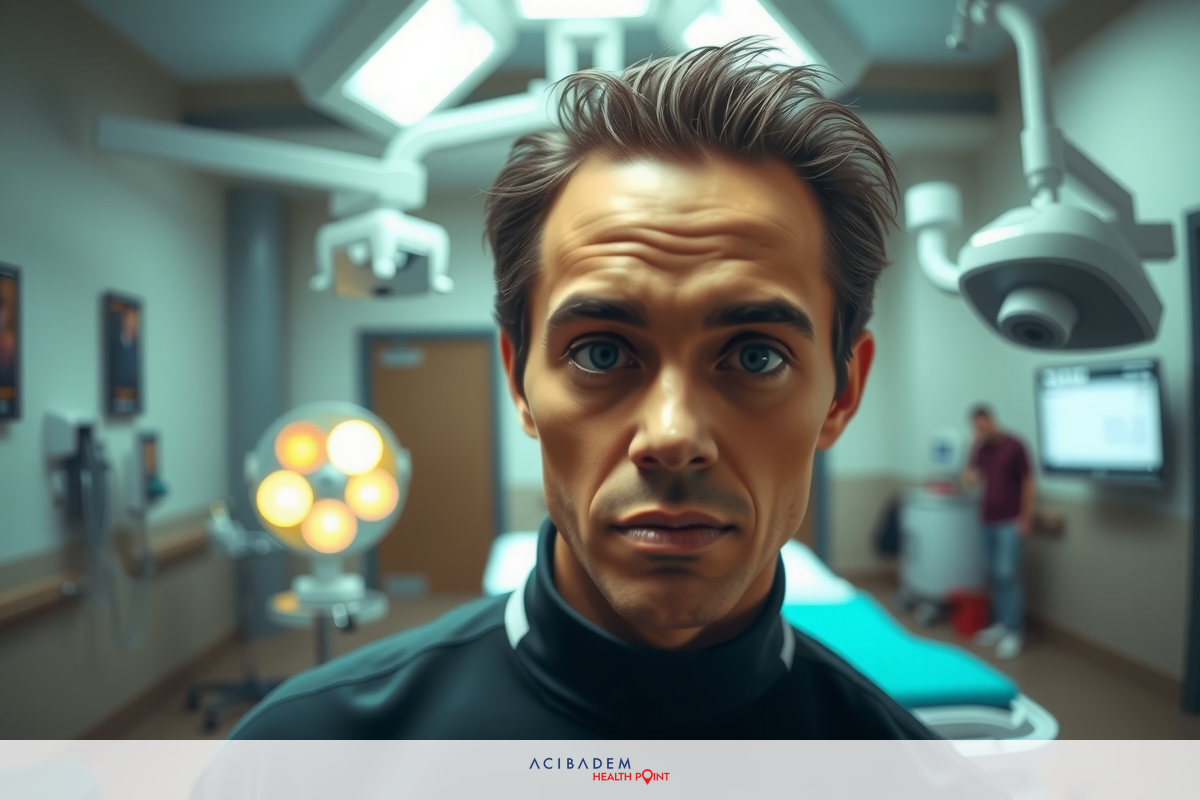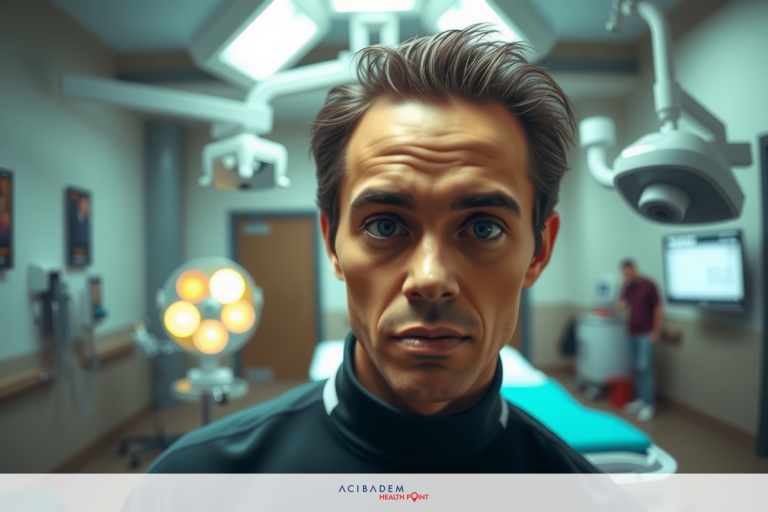Can You Take Propecia While Undergoing Rhinoplasty?
Can You Take Propecia While Undergoing Rhinoplasty? Propecia, a popular hair-loss medication, intersects with rhinoplasty—commonly referred to as nose reshaping surgery—in an unexpected but important way. Patients undergoing rhinoplasty may wonder if they can continue their Propecia regimen during the surgical process.
Consulting both your surgeon and physician before making any decision is paramount. They will offer personalized advice based on your unique health profile and surgical needs. Furthermore, managing hair loss post-rhinoplasty presents its own challenges which might require alternatives to Propecia.
Remember that every patient’s situation differs; thus, it is crucial to maintain open communication lines with your healthcare providers about all medications you are taking prior to having cosmetic surgery such as rhinoplasty.
Safety of Taking Propecia During Rhinoplasty
Perplexity arises when considering the safety of taking Propecia, a medication often prescribed for hair loss, in conjunction with undergoing rhinoplasty. It’s essential to understand both the risks and benefits involved. On one hand, Propecia performs an important role in slowing down or even halting hair loss in many patients; on the other hand, any form of medication can potentially interact negatively with surgical procedures.
Rhinoplasty is a cosmetic surgery that reshapes the nose for aesthetic purposes or to improve breathing. This procedure has its own set of considerations and complications that need careful evaluation by a medical professional. When you add Propecia into this equation, it becomes even more complex due to potential drug interactions and how they might impact your healing process post-surgery.
For some individuals who have been regularly using Propecia prior to their scheduled rhinoplasty operation, abrupt discontinuation could lead to unwanted side effects such as accelerated hair loss. However, continuing usage without consulting your surgeon may pose risks related to bleeding during surgery or slow wound healing afterwards due to the effect on platelet function—an integral aspect of blood clotting—in certain individuals.
The decision about whether or not it’s safe for you personally hinges upon various factors like your general health status and specific details about your upcoming rhinoplasty procedure. Your physical condition will be evaluated comprehensively before making this call—the extent of work needed on your nasal structure during surgery could also play a part in determining if continuing Propecia is advisable.
In conclusion, although there are potential benefits associated with taking Propecia during rhinoplasty—mainly maintaining progress made against hair loss—it’s vital not to overlook possible drawbacks including increased risk factors tied up with surgical outcomes.
Consulting Your Surgeon and Physician
The intersection of Propecia use and rhinoplasty surgery underscores the importance of consulting both your surgeon and physician. These healthcare professionals will provide crucial input on whether you should continue taking this hair loss medication while preparing for or recovering from cosmetic nose reshaping. Their expertise is invaluable as they would consider your overall health, surgical requirements, potential side-effects of Propecia, possible drug interactions, and other factors that could impact the safety and success of your procedure.
Your surgeon plays a critical role in managing all aspects related to the actual rhinoplasty operation. Given their intimate understanding of what the procedure entails—from preoperative preparations to post-surgery recovery—they are best positioned to advise if continuing Propecia might adversely affect surgical outcomes such as bleeding during operation or wound healing afterwards. Grasping these nuances helps them guide you through an informed decision-making process regarding medication usage around your surgery.

Concurrently, it’s essential not to overlook the unique insight that physicians bring to this discussion. As experts in internal medicine who understand how different drugs interact within our bodies, they offer a broader perspective on using medications like Propecia amidst major medical procedures like rhinoplasty. They can assess potential repercussions on systemic health beyond just localized effects at the surgical site—such considerations include hormonal balance (since Propecia interferes with testosterone conversion), liver function (where most drug metabolism occurs), among others.
In conclusion, opting for joint consultation with both surgeons and physicians paints a more comprehensive picture about safely managing Propecia use during your rhinoplasty journey—it allows multiple facets of health care to converge towards achieving optimal results while minimizing risk exposure.
Managing Hair Loss During Rhinoplasty Recovery
An often overlooked aspect of rhinoplasty recovery is the management of hair loss, especially for those individuals who have been using Propecia prior to their surgery. The post-operative period could be marked by an accelerated rate of hair thinning or loss if you’re advised to discontinue this medication around your cosmetic nose reshaping procedure. While this might seem daunting, there are alternative approaches to consider that can help mitigate such outcomes.
One potential strategy involves exploring other hair care products designed specifically for post-surgical scenarios which may not carry the same risks as Propecia when used during a recovery phase. These alternatives come in various forms—topical solutions, shampoos and conditioners enriched with ingredients known to support hair health (like biotin and keratin), even dietary supplements boasting essential vitamins and minerals beneficial for maintaining strong locks. Before trying any new product though, always seek professional advice from your healthcare provider since what works well for others may not necessarily suit your specific needs.
Lifestyle modifications also play a key role in managing hair loss during rhinoplasty recovery—it’s far more than just about taking the right medication or using good quality products! Implementing a balanced diet rich in nutrients vital for healthy follicle function (such as proteins, omega-3 fatty acids, iron), regular exercise promoting enhanced blood circulation (which nourishes scalp tissues), adequate stress management techniques—all these factors synergistically contribute towards slowing down the process of losing hairs while recovering from rhinoplasty surgery.
In conclusion, navigating through possible acceleration of hair thinning or loss postrhinoplasty requires holistic consideration beyond merely relying on medications like Propecia—it entails exploration into suitable alternatives coupled with dedicated lifestyle changes aimed at boosting overall health status which indirectly benefits preserving one’s crowning glory too!
Frequently Asked Questions
Can I continue taking Propecia during my rhinoplasty procedure?
There isn't a one-size-fits-all answer to this question because it depends on various individual factors such as your overall health, the specifics of your surgery, and how you react to Propecia. Consultation with both your surgeon and physician is crucial before making any decision about medication use around the time of surgical procedures.
What are some potential risks if I keep using Propecia while undergoing rhinoplasty?
Some possible risks include increased bleeding during surgery or slow wound healing post-procedure due to effects on platelet function—an integral aspect of blood clotting—in certain individuals. However, please remember that these risks vary from person to person based on their unique medical profile.
What alternatives can be considered for managing hair loss if I have to stop taking Propecia during my rhinoplasty recovery phase?
Alternatives range from other hair care products designed specifically for post-surgical scenarios, lifestyle modifications like balanced diet and regular exercise promoting enhanced scalp circulation, stress management techniques—all contribute towards slowing down hair thinning or loss.
Do all patients experience accelerated hair loss after discontinuing Propecia for their rhinoplasty operation?
Not necessarily—how one's body responds varies widely across individuals. Some might notice quicker thinning out whereas others may not observe any substantial difference in their rate of hair fall upon stopping this medication.











